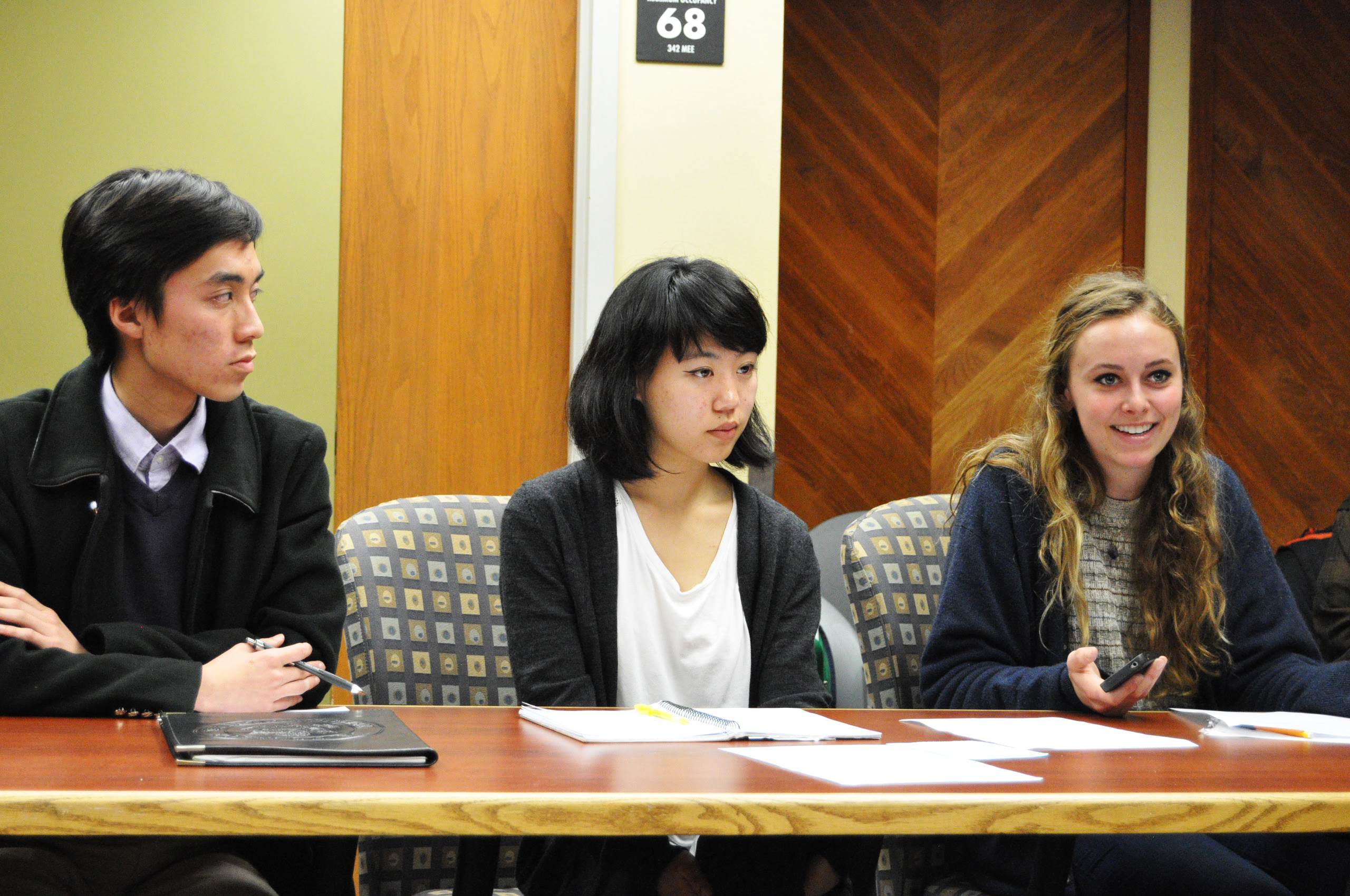 ASUCD court has had a significantly busy Winter Quarter, however many students are unaware of its role on campus.
ASUCD court has had a significantly busy Winter Quarter, however many students are unaware of its role on campus.
“Without us, ASUCD would have no oversight whatsoever,” said second-year science and technology studies major and associate justice Alexis Caligiuri.
ASUCD Court is the judicial branch of the university’s student government.
“We interpret the [ASUCD] constitution,” said fourth-year economics major and Interim Chief Justice Andaru Iman. “We judge whether or not legislation is constitutional and whether or not certain actions are constitutional.”
According to the ASUCD Constitution, the court has “the ultimate authority to interpret the wording of [the] Constitution” and to decide whether legislation, most commonly written by students, is consistent with it.
“We’re a very dedicated group,” Caligiuri said. “We swear an oath to protect the ASUCD governing documents and we are confirmed in front of the senate and we all take that very seriously.”
The ASUCD Vice President, along with the senate, hires students as justices, who must complete an intensive screening process and extensive training. Iman said the court uses a system of apprenticeship in which more experienced justices teach new hires.
Although justices are given their positions for the entirety of their time as undergraduate students, up to four years, they are inevitably cycled in and out of the court. These apprenticeships facilitate a strong institutional memory which, in theory, keeps the court consistent in its decision making.
When the court is not hearing cases, they conduct mock trials and teach new hires about the structure of ASUCD and the responsibilities of the court. Some quarters are busier than other when it comes to the amount of cases requiring deliberation.
“This is going to be a pretty active quarter for the court,” said current ASUCD Vice President Maxwell Kappes. “Sometimes it’s less active. It really depends on what is going on at ASUCD. The more active student government is, the more active the court is going to be, in response.”
One of the most active periods for ASUCD is during elections season, most commonly held in the fall and winter quarters of the academic year. Additionally, last week the ASUCD court heard former ASUCD Controller Rylan Schaeffer’s case and decided in his favor, and on Feb. 18, the court will hold a hearing about divestment related to Senate Resolution #9, which was passed in ASUCD senate on Jan. 29.
Iman mentioned that although issues with elections are generally brought to the ASUCD elections committee, if someone is not happy with their decision, the issue can be brought to the court, which has a more formal process and makes the final decision on the matter.
Any UC Davis student who identifies a possible constitutional issue within ASUCD or legislation can bring it to the ASUCD court.
“The court process is relatively straightforward,” Schaeffer said. “Two sides enter, each side is given an opportunity to make opening statements. Then there’s a period in which they can call witnesses or raise pieces of evidence. Both sides can either, if it’s witnesses, cross examine them, or if it’s evidence, cast either doubt on it or clarification. Then there are closing statements.”
However, bringing an issue to the court would require knowledge of the rules. According to Kappes, the court is not very activist by design.
“If a complaint was brought to them by an everyday student, they would see it,” Kappes said. “That just doesn’t occur, because normally a complaint has to do with internal ASUCD rules and most students who don’t even know what ASUCD does aren’t going to know the rules either.”
Iman pointed out that the court could not bring cases up themselves but relied on students outside the court to bring issues to them so that they can be decided on. Both Iman and Kappes referred to the court as an “island,” as it is separated from the general politics of the other branches. Although they have jurisdiction over the other branches, Kappes and Iman both commented on the courts lack of power to enforce decisions.
“The strongest things they can do is they can overturn elections, they can rule things unconstitutional,” Kappes said. “They can slap your hand, but you can still do what you want. It’s a problem. We’re trying to figure out ways to address it, it’s just very difficult because if you give the court too much power then the court can really become very activist and just radically change the associations without any repercussions, because court members are there until they graduate or resign.”
Schaeffer’s case, seen at court on Feb. 4, reflects both the norms governing the utilization of the court and the perceived issue of enforcement. Schaeffer sued ASUCD in response to what he and the court felt was a lack of consistency in financial policy with regards to compensating students who teach undergraduate courses.
Specifically, Schaeffer mentioned that ASUCD currently has positions within the Campus Center for the Environment for which it pays students who teach courses related to the environment. Schaeffer teaches courses related to computer science, and did not receive equal compensation despite equivalent workload in a class of equivalent legitimacy. The court found this unconstitutional.
Although the court ruled in his favor, Schaeffer believes that not enough was done to correct the problems he brought to them.
“In this case, senate was forced to do nothing,” Schaeffer said. “They were told ‘you shall rectify this situation,’ not specified how. They were given no timeline to do so, so if they decide to postpone the issue five years, they’re more than able. And the court said they have to come up with a future policy, but that doesn’t address the problem that for this past year there’s been a discriminatory practice. So in my eyes, I was really perplexed by their decision.”
Caligiuri emphasized the importance of student awareness when it comes to legislation as ASUCD’s influence can be seen throughout campus in their various units.
“If [students] see a violation of a bylaw or the constitution, they can write a petition and we will consider it as seriously as all our other positions,” Caligiuri said. “It’s up to the ASUCD student body to utilize us as a resource for maintaining the sanctity of the government.”
The ASUCD constitution, bylaws, and past court decisions can be found under Government Documents at asucd.ucdavis.edu.
Photo by Jian Gelvezon





